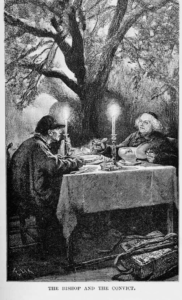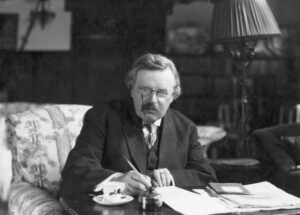Secondly, Obama's campaign has been far less about his ideas than it has been about him. This separates Obama from political figures like Ronald Reagan. Reagan was also a very attractive personality but his candidacy was, at its core, based on his political philosophy and a set of (conservative) ideas.
Obama, as much as any national politician I can recall, has made his presidential candidacy personality-based. Its success depends on the public's sense of who he is — and that puts added importance on the public having confidence in Obama's character and values, his judgment and his integrity. Many of us were attracted to Obama precisely because of how he came across: reasonable, thoughtful, measured, a person who was attempting to transcend racial divisions. We found his liberalism troubling — but we found him to be personally impressive.
When the Wright story broke, it raised serious questions about whether what Obama was projecting to the public was consistent with his life. It was jarring to think that the Obama of the 2008 campaign — who presented himself as a unique, unifying figure in American politics — could for 20 years attend church and develop a close personal relationship with a minister of hate and division and bigotry. The questions we had are beginning to answer themselves, and in a way that could be politically lethal for Obama.
What Obama is asking us to believe is that the Wright we have all now seen — both in the television clips from his sermons and now, fully in context, in his National Press Club appearance — is fundamentally different than the Wright that Obama got to know during the last two decades.
A month ago we were told that Wright was “like family to me.” Obama “could no more disown him that I could my white grandmother — a woman who helped raise me, a woman who sacrificed again and again for me.” The relationship was so intimate that Wright married Obama and his wife, baptized their two daughters, and was the inspiration for the title of Obama's best-selling book.
That was then. This is now. “The person I saw yesterday was not the person that I met 20 years ago,” Obama said on Tuesday. Obama was “shocked” and “surprised” by the man he heard speak at the National Press Club. Wright's words, Obama insisted, “contradicts what [I] believe so fundamentally.”
But the notion that Jeremiah Wright is a fundamentally different person now than he was just a few years ago seems extremely implausible. Wright is, after all, a person who long ago embraced the “black liberation theology” of James Cone. Wright is a man who traveled to Libya in the 1980s with Louis Farrakhan and met with Muammar Qaddafi. Wright was instrumental in honoring Farrakhan a few years ago and praised him as a great figure. Wright has used his “Pastor's Corner” in the Trinity United Church bulletin to reprint pieces by a leading Hamas figure. And Obama was concerned enough about what Wright had said in the past that he disinvited Wright from playing a role when Obama announced he was running for president. It's also worth recalling that in a New York Times story last year on Wright and Obama, Wright indicated that the two had spoken and agreed that if Obama ever got the nomination, the senator would have to distance himself from Wright. How prescient. This all makes Obama's claim that the Wright on display on Monday was something wholly new and offensive to Obama difficult to accept.
Sen. Obama himself, in his much-praised race speech in Philadelphia, tried to leave himself an escape hatch when he — in a shift — conceded that he knew Wright to be “an occasionally fierce critic of American domestic and foreign policy.” Obama said that he in fact heard “controversial” comments by Wright while he sat in church and “strongly disagree[d] with many of [Wright's] political views.” But Obama never told us specifically what he heard that qualified as “controversial” and qualified Wright as a “fierce critic” of the U.S. government — and an unusually passive media never asked. But one got the distinct impression that Wright's National Press Club speech Monday was no maiden voyage.
Barack Obama is in treacherous territory. He is now in a very visible and increasingly ugly fight with a man who was an intimate friend and who on Monday showed he is both beyond the control of the Obama campaign and willing to go after Obama's character. From all we can tell about Wright, this fire probably hasn't burned itself out just yet.
A few months ago, Barack Obama, a very likable man in possession of some tremendous talents, was soaring high above the political seas. He now looks to be heading directly for the cliffs. It isn't a pleasant thing to watch. But it appears to be something he has brought on himself.
— Peter Wehner, former deputy assistant to the president, is a senior fellow at the Ethics and Public Policy Center.

